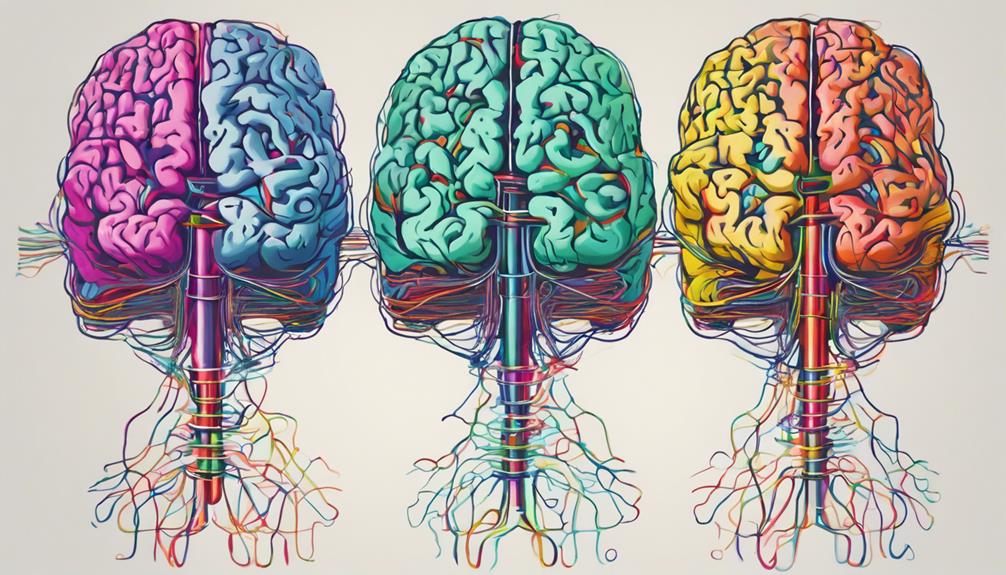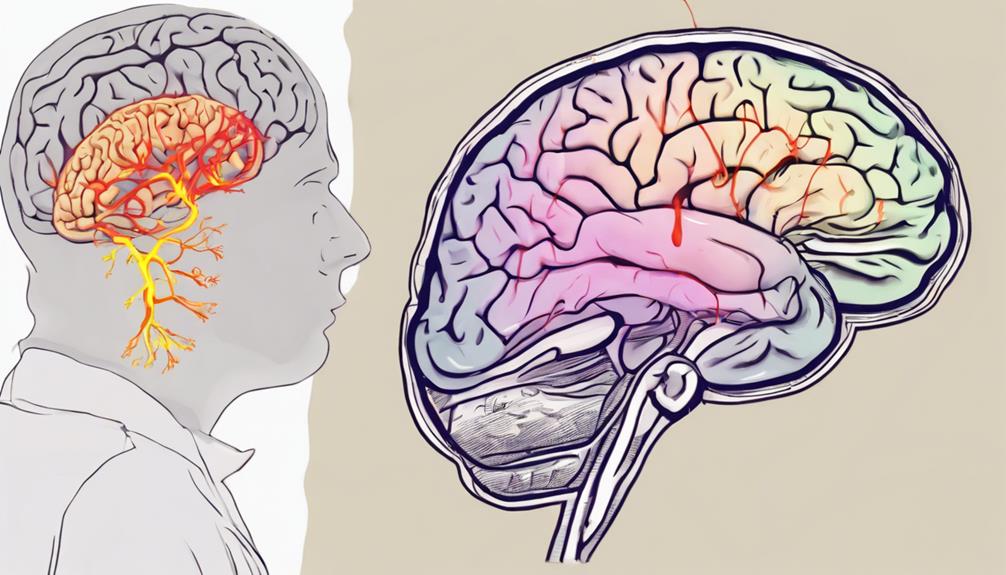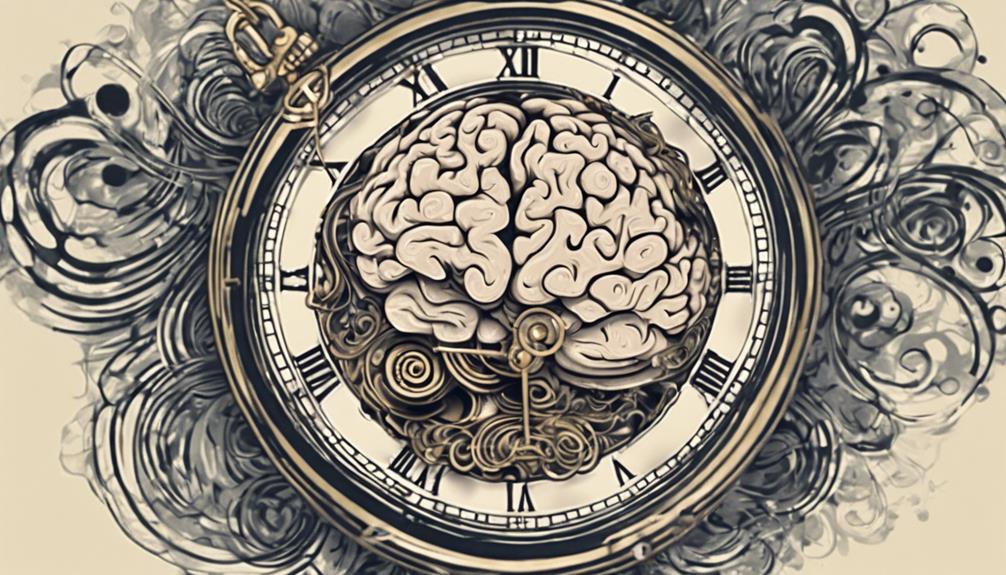Hypnotic suggestions impact brain responses by reshaping neural pathways and activity patterns, influencing sensory processing, emotions, and cognition. The phenomenon of neuroplasticity allows for these alterations in the brain to occur through hypnosis. Studies indicate changes in brain regions like the prefrontal cortex during hypnotic inductions, highlighting the intricate neural mechanisms at play. Additionally, altered states of consciousness induced by hypnosis provide valuable insights into the effects on perception and cognitive functions. Further exploration into brain imaging studies can unveil the detailed neural correlates of hypnotic suggestions on brain activity and connectivity, offering a deeper understanding of this intriguing phenomenon.
Neuroplasticity and Hypnotic Suggestions

Neuroplasticity plays a crucial role in the understanding of how hypnotic suggestions can induce changes in brain functioning and behavior. Neural plasticity refers to the brain's ability to reorganize itself by forming new neural connections throughout life.
When it comes to hypnotic conditioning, this phenomenon becomes particularly relevant. Research has shown that hypnotic suggestions can lead to alterations in neural pathways, ultimately affecting an individual's perception, cognition, and even physiological responses.
Studies utilizing neuroimaging techniques have provided insights into the neural mechanisms underlying hypnotic suggestions. Functional magnetic resonance imaging (fMRI) studies have demonstrated changes in brain activity patterns following hypnotic inductions, highlighting the involvement of various brain regions such as the prefrontal cortex, anterior cingulate cortex, and insula.
These findings suggest that hypnotic suggestions can modulate neural plasticity in a way that influences sensory processing, attention, and emotional responses.
Understanding the interplay between neural plasticity and hypnotic conditioning can offer valuable insights into the potential therapeutic applications of hypnosis for conditions ranging from chronic pain management to anxiety disorders.
Altered State of Consciousness
The concept of altered states of consciousness pertains to distinct mental states differing from the ordinary waking state, often characterized by shifts in perception, cognition, and self-awareness. These altered states can be induced by various methods, including hypnosis.
Research suggests that during altered states, there are changes in neural activity within the brain. These changes can be observed through techniques such as neuroimaging, which have shown alterations in brain regions involved in perception, attention, and self-referential processing.
One key aspect of altered states of consciousness is altered perception. This entails changes in how individuals experience and interpret sensory information. Studies have demonstrated that under hypnosis, individuals may exhibit heightened or diminished sensory perception, altered time perception, and even experience hallucinations.
These alterations in perception can be linked to the modulation of neural circuits responsible for processing sensory inputs and integrating them into conscious awareness. Understanding the neural mechanisms underlying altered states of consciousness can provide valuable insights into the effects of hypnotic suggestions on brain responses.
Suggested Analgesia and Pain Perception

Suggested analgesia in the context of altered states of consciousness involves the modulation of pain perception through hypnotic suggestions. Research indicates that hypnotic suggestions can lead to significant pain relief by leveraging the placebo effect, where the individual's belief in the efficacy of the suggestion plays a crucial role in pain reduction.
Additionally, relaxation therapy, often incorporated in hypnotic sessions, can further enhance the analgesic effects by promoting a state of calmness and reducing stress, which in turn can alter neural pathways related to pain processing.
The placebo effect, triggered by the individual's expectation of pain relief following hypnotic suggestions, can activate endogenous pain modulation systems in the brain, leading to a decrease in the perception of pain intensity. This phenomenon highlights the intricate connection between psychological factors and pain perception, showcasing the potential of hypnotic interventions in managing pain.
Cognitive Changes in Hypnosis
Cognitive changes observed during hypnosis encompass alterations in attention, perception, and memory processes. Hypnotic suggestions can modulate cognitive processing by influencing neural pathways and altering the way information is perceived and stored in the brain. Research suggests that hypnosis can enhance attentional focus, leading to increased responsiveness to specific stimuli while reducing awareness of others. This selective attention mechanism may involve changes in neurological mechanisms related to the allocation of cognitive resources.
Moreover, hypnosis has been associated with alterations in perception, where individuals under hypnosis may experience changes in sensory processing, such as heightened sensitivity or reduced sensitivity to stimuli. These perceptual changes can be linked to shifts in neural activity, highlighting the neurobiological underpinnings of hypnotic effects on cognitive functioning.
Memory processes also exhibit modifications during hypnosis, with studies indicating that hypnotic suggestions can influence the encoding, storage, and retrieval of memories. This suggests that hypnosis may impact cognitive processing at various stages of memory formation through its interaction with neurological mechanisms involved in memory consolidation and recall.
Brain Imaging Studies in Hypnosis

Recent advancements in neuroscience have enabled researchers to investigate the neural correlates of hypnosis through brain imaging studies. Functional magnetic resonance imaging (fMRI) and positron emission tomography (PET) have been crucial tools in unveiling the underlying neural mechanisms of hypnosis. These studies have revealed changes in brain activity and connectivity during hypnotic states, shedding light on how hypnotic suggestions alter cognitive processes.
Functional connectivity studies have shown that hypnosis can modulate interactions between brain regions involved in attention, perception, and self-awareness. For instance, increased connectivity between the prefrontal cortex and the anterior cingulate cortex has been observed during hypnosis, suggesting a potential role in cognitive control and monitoring of cognitive processes.
Additionally, neural correlates of hypnosis have been linked to alterations in the default mode network, a key brain network involved in self-referential thoughts and mind-wandering.
Frequently Asked Questions
Can Self-Hypnosis Be as Effective as Guided Hypnosis Sessions?
When comparing self-hypnosis to guided sessions, benefits include convenience and privacy, but drawbacks may include lack of external guidance and personalized feedback. Guided sessions offer structured support and expert guidance for optimal results.
Are There Any Long-Term Negative Effects of Hypnosis on the Brain?
Research suggests that hypnosis can impact brain plasticity, cognitive function, and emotional regulation. Long-term effects on the brain remain debated, with some studies indicating potential benefits while others raise concerns about neurological changes.
Do Certain Personality Traits Make Someone More Susceptible to Hypnosis?
Individual differences in personality traits can impact susceptibility to hypnosis. Research shows that individuals with higher levels of absorption, openness to experience, and suggestibility tend to exhibit greater hypnotic responses compared to those with opposing traits.
How Do Different Types of Hypnosis Techniques Affect Brain Responses?
Various hypnosis techniques, such as direct suggestion or visualization, can modulate brain responses by altering neural connectivity and brainwave patterns. Understanding these effects sheds light on how hypnosis influences cognitive processes through specific neurological mechanisms.
Can Hypnosis Help With Memory Enhancement and Recall?
Hypnosis, a technique known for inducing a trance-like state, may offer cognitive benefits in memory improvement. Various memory enhancement techniques under hypnosis, such as visualization and suggestion, show promise in aiding memory recall and retention.
Conclusion
In conclusion, hypnotic suggestions influence brain responses through neuroplasticity, alterations in consciousness, suggested analgesia, cognitive changes, and brain imaging studies.
These factors contribute to the ability of hypnotic suggestions to modulate brain activity and perception.
Further research is needed to fully understand the mechanisms underlying the effects of hypnotic suggestions on the brain.


